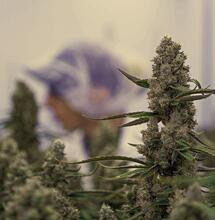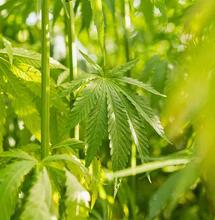Cannabis, the new multi-billion dollar industry in Africa.

In most African countries, marijuana is illegal. However, as governments around the continent begin to recognise cannabis as "green gold", they are taking steps to introduce a legal framework for cultivation and exports. Until a decade ago, this was unimaginable.
According to Prohibition Partners, a research and consulting firm specialising in the legal cannabis industry, Africa's legal cannabis sector could hit a value of $7.1 billion by 2023.
Multi-million deals across the continent are abounding. This summer, South Africa's biggest cannabis brand Goodleaf, merged with Highlight Investments, which operates in neighbouring Lesotho. The deal is worth over $45 million.
In April, Lesotho's MG Health, a licensed operator of medical cannabis products, became the continent's first to receive confirmation of the European Union (EU) Good Manufacturing Practices (GMP) certification.
Alongside business victories, legalisation is also advancing. Lesotho became the first African country to legalise marijuana in 2017. Earlies this year, Morocco joined the club. A swathe of other countries, including South Africa, Nigeria, Zimbabwe, Ghana, Malawi, eSwatini and Zambia, also have a legal framework to regulate cannabis or are on the verge of getting one via parliament.
Even before introducing a legal framework, a country such as Morocco has generated $13 billion worth of cannabis exports overseas to Europe annually. The cannabis sector in this country employs approximate 1 million people.
Morocco's move to authorise the "medical, cosmetic, and industrial" use of cannabis, and with that provide regulation for an already well-established sector, will likely trigger other countries - sleeping giants such as Nigeria, Ethiopia and the Democratic Republic of Congo - to also legalise the industry.
With legalisation, African countries could earn a chunk from the global cannabis market projected to reach $90 billion value by 2026. Cannabis could invigorate the continent's economy. Some countries see cannabis as a substitute commodity to replace declining tobacco production. There are also substantial economic opportunities with new cannabis medicines, paper production, hemp bricks and other hemp products.
However, despite the enormous economic potential that cannabis represents, when it comes to acceptance and public opinion, public figures and leaders remain predominantly vocal against it.
Data from UK analytics firm New Frontier Data suggests that there are over 83 million cannabis consumers all over Africa, with Nigeria leading the pack with 20.8 million users alone. Legalising the adult use of marijuana in Africa would breach morality principles. There's ongoing propaganda that smoking weed will negatively affect young populations. Such a sentiment is perhaps best summed in the words of Uganda's first lady, Janet Museveni, who has likened pot to being "satanic" and ruinous to the "future of our children". In Uganda, data suggests there are over 2.6 million cannabis users.
When it comes to growing, a good majority of small farmers grow marijuana plants in secret. Farming is often punishable by jail. Even now, when more governments are preparing for reform, the chances are minimal that upcoming laws will encompass local consumption or homegrowing. African lawmakers are prone to design laws that focus heavily on international trade and which benefit big growers.
South Africa remains a rare example of having a regulatory framework encompassing both international and domestic markets. But even there, obtaining a license to grow legal medicinal cannabis is costly. A lot of small growers are not able to afford to get a permit. Even if they do, they are then subjected to rigid safety protocols they need to follow.
The Black Farmers Association of South Africa has expressed its disappointment with the regulation. Out on a protest, the association claimed that black farmers do not have an equal opportunity for work in the sector. South Africa has a draft master plan for the industrialisation and commercialisation of medicinal cannabis, the country's latest instrument to tackle poverty and unemployment. However, black farmers can only hope the rules are relaxed sometime in the future so that they too can benefit from the budding sector.
South Africa became one of the first countries in the world last year to authorise research into cannabis for covid-19. The status of cannabis is pretty advanced compared to other African nations. Should the country address flaws in its regulation, it could eventually become a model other African neighbours can follow.
Cannabis could certainly help fix some of Africa's economic struggles, currently fueled by a swirling global pandemic. But it will take time until governments work together to break the stigma and until the public perception - especially in more religion-orientated communities - changes for good. Don't get me wrong. I have the utmost respect for all religions, but it's dagga that came to save that which was lost.



